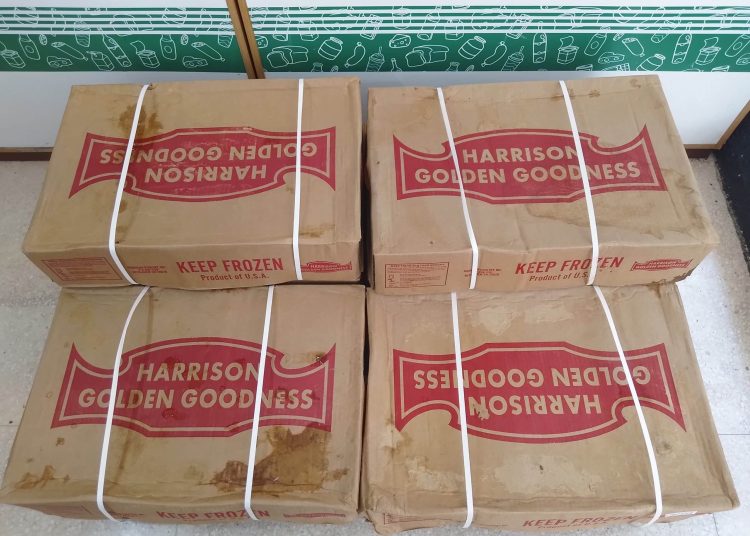The theft of 133 tons of frozen chicken for subsidized sale from inside a Cuban state enterprise has generated a great citizen stupor, a strong judicial response, and a call from the government and the Communist Party to use a “firm hand” against crime.
The result, according to the official version, is overwhelming: an illegal benefit estimated at 1.35 million dollars, 8,500 stolen 15-kilogram boxes of frozen chicken, dismissals, removals, eight home searches, and at least 30 detainees, who could face up to 20 years in prison.
The theft of chicken ― the main source of protein in Cuba ― occurs amid a serious economic crisis on the island, where frequent blackouts and rampant inflation are compounded by shortages of basic products, including fuel, medicines, and food.
The plot, according to state television, was uncovered after the last of about five thefts — about 26 tons of chicken in 1,660 boxes — on a date that the state news agency did not specify, but which revealed a complex “modus operandi” and with many involved.
According to this reconstruction of the events, the perpetrators entered the Havana facilities of the state enterprise Copmar, dependent on the Ministry of Food Industries, at dawn and took away hundreds of boxes of frozen chicken with a truck.
The criminals had the support of enterprise personnel, who gave them access, and then they had developed a system to clone the metal seals on the cold room doors so that the theft was not obvious.
However, Cuban television recognized control failures at different levels because the total stolen is equivalent, according to official estimates, to the amount of chicken that the state sells at subsidized prices for a month in a “medium-sized province.”
The authorities indicated that each box was resold for 3,800 Cuban pesos (158 dollars at the official exchange rate, but only 12.5 dollars at the informal exchange rate), when the average salary is 4,200 pesos. On the black market, this product can reach much higher prices.
Among the 30 defendants ― 11 in provisional prison ― there are “shift leaders, technologists, custodians” and also people not linked to Copmar, according to state media.
Among the crimes contemplated by the prosecutor’s office are “embezzlement, theft, bribery, failure to comply with the duty to preserve the assets of economic entities and reception,” which is why acts of common crime, but also corruption, are being investigated.
Marta María Gonzalez del Sol, prosecutor of the criminal proceedings department of Havana, assured state television that “a severe decision will be sought because the case warrants it.” She highlighted “the harmfulness,” the seriousness of the damage, “the historical moment” ― in reference to the serious crisis ― and “the affected product,” a staple of the Cuban diet.
There have already been political consequences: the official media reported the dismissal of the general director of Copmar and the management of the state business entity in which it is a member, the Havana Base Economic Unit (UEB).
Ten days ago, Cuban Minister of Food Industries Manuel Santiago Sobrino was dismissed, without revealing the reasons behind this, beyond speculation due to the collapse of agricultural production and its repercussions on the volume of subsidized products.
Granma newspaper, the official organ of the Communist Party of Cuba (PCC), dedicated this Monday an editorial with a call on the front page to fight against “crime” and “corruption” in which the reasons for its argument were not referred to, but events similar to those of this theft were denounced.
“The leadership of the Revolution has reiterated the call to close ranks and to act with a firm hand, without half or lukewarm measures, and with adherence to the Law, as has always been done against these criminal manifestations,” the text underlined.










